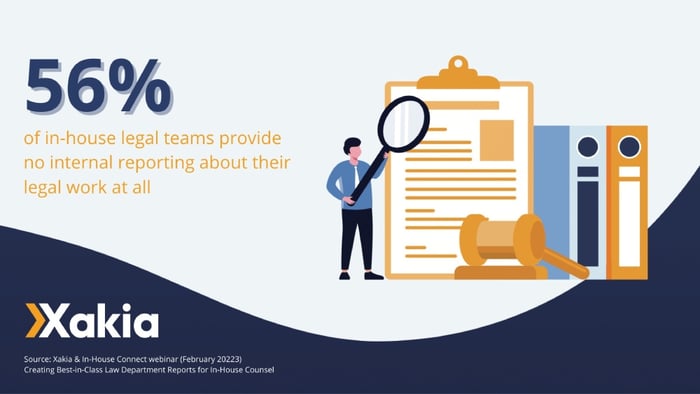Many corporate in-house Legal Departments are suffering from a reputation problem. In fact, in a global survey conducted by Provoke Insights, less than half of internal corporate clients said they viewed their in-house legal team as “trusted advisors.”
Specifically, IT, Marketing and Procurement are the toughest critics, with approval ratings of the Legal Department at 38 percent, 37 percent and 37 percent, respectively.
That’s tough to swallow for lawyers who are both used to being over-achievers and working harder than ever. This year, 99 percent of Legal Departments report their workloads growing in both volume and complexity.
In most cases, the problem isn’t that in-house lawyers fail to give smart, sound or timely advice: it’s that the business doesn’t understand their contribution.
Like you, your business clients are busier than ever. Like you, they can suffer from tunnel vision, hyper-focusing on their own function and responsibilities.
Unlike you, they are not lawyers! They are not out to get you – they just don’t understand what Legal does.
And frankly, it’s no wonder: In a Xakia poll of nearly 400 in-house lawyers, more than half - 56 percent – provide no internal reporting about their legal work. At all.

Top corporate legal teams – In-House Legal Heroes, if you will – understand that reporting is not a nuisance: It is an opportunity to demonstrate the value that the Legal Department brings. (And in a world with fewer meetings, hybrid work and dispersed workforces, it is increasingly the only opportunity).
And In-House Legal Heroes understand that the benefits of reporting compound. Report by report, the Legal Department builds trust – trust that it might need later to effectively manage a dispute, change a policy or negotiate a high-stress contract.
How can in-house Legal Departments demonstrate value?
So, how do they do it? While every in-house team’s reporting protocols may be a little different, top Legal Departments demonstrate legal value in four key ways:
1. Make it reader-friendly
There’s an adage that lawyers think in paragraphs, but business people think in dashboards and charts. In-House Legal Heroes do away with long memos or lists of legal matters; they present their accomplishments like their peers in Marketing and Finance, with visual aids.
2. Align your legal reports with company priorities
Your board, CEO and business clients are stressed and pressed; they want the “need to know” news, and they want it fast. Corporate Legal Departments lead with their work of most importance, starting with the company’s strategic objectives and risk management.
In-house Legal Departments know that a concise report that emphasizes quality through contributions to advancing the company’s goals – and minimizing its liability – is far more likely to be consumed and valued than a long list of legal matters that shows quantity (many matters of unknown impact).
3. Tailor legal reports to the audience
Legal Departments acknowledge that there’s no one-size-fits-all report; the C-suite has different wants and needs than IT. For the CEO, a legal report might focus on risk, strategy and budget. For business units, reports should take a “What’s in it for me” approach – how did the Legal Department support IT this quarter?
Smart in-house Legal Departments also take this opportunity to flag troublesome trends with their reports and start corrective discussions (and actions) early. It’s a far better relationship-builder to address an issue one quarter in than to be forced to call out Marketing in front of the Board at the end of the year.
Tip: Learn more about effective reporting setups for various stakeholders in our white paper, Best-in-Class Legal Reporting.

4. Demonstrate quantifiable value
Your business colleagues are held to a standard of monetary impact: units sold, market share, contract value, budget savings. The same should be true for the in-house corporate Legal Department. Sure, you may have executed 200 contracts last quarter, and the lawyers know that’s a significant number of hours (and perhaps teeth-gnashing). But that number is devoid of context for your business peers. Instead, In-House Legal Heroes frame their work in terms of the business:
- Eliminated risk (in currency)
- Contract value
- Transaction closing value
Top legal teams also apply a quantitative approach to their own delivery, measuring – and improving upon – key metrics like contract turnaround time. Not only does this build and reinforce a culture of continuous improvement, it shows accountability to the business units who do the same. It creates a “We’re in this together” camaraderie instead of keeping the Legal in a mysterious ivory tower.
 Ready to get started?
Ready to get started?
By framing reporting as not just a recitation of what was done, but what value was created, Legal Departments will build relationships and standing within their organizations – relationships and standing merited by the lawyers’ talent, dedication, and results.
What else does it take to be an In-House Legal Hero? Complete the form below and download our white paper to find out more.
Legal matter management software to help Legal Departments show value
Be an In-House Legal Hero with Xakia's legal analytics software. Our powerful legal reports and dashboards will unlock the full picture of your corporate Legal Department and help demonstrate your value to the organization. To learn more about our in house legal software, get in touch with the team today for a demo.
